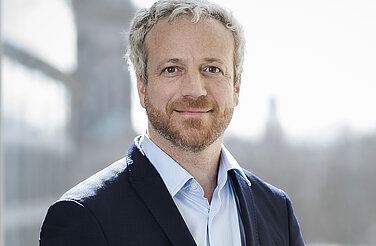-
With the growth of renewable energy, France and Germany are facing common challenges regarding the restructuring of their conventional power plant fleet.
With a renewable electricity target of 40% in France and 65% in Germany by 2030, the two countries will significantly increase their production of wind and solar energy. Their conventional power plant fleet will have to be resized accordingly to avoid stranded costs.
-
In France, the targeted development of renewable energy alongside the reinvestment in the nuclear fleet greater than 50 GW would pose a significant risk of stranded costs in the electricity sector
A nuclear fleet exceeding 40 GW in 2030 would increase the national electricity export surplus and additionally postpone the achievement of the objective of reducing the share of nuclear power to 50% beyond 2030. The profitability of a nuclear fleet greater than 50 GW would not be assured in 2030, even when assuming a 60% increase in French export capacity, a doubling of interconnectors capacity in Europe and a CO2 price of 30 euros per ton of CO2.
-
In Germany, achieving climate targets requires a halving of coal-fired power generation and an increase in the national renewable electricity target to at least 60% of electricity consumption in 2030.
In this case, Germany’s electricity trade balance with its neighbours is balanced. The new planned target of 65% renewable energy in electricity consumption by 2030 will ensure that Germany will not depend on undesired electricity imports while phasing-out coal.
-
France and Germany should rapidly define their national strategies regarding their nuclear and coal fleets, closely consult each other on cross-border consequences and initiate joint actions for the implementation of the energy transition at bilateral, regional and European levels.
These joint actions could take the form of initiatives led by the two countries on the development of renewable energy, interconnectors or CO₂ pricing.
This content is also available in: German
The 'Energiewende' and the 'transition énergétique' by 2030
Focus on the electricity sector. Co-dependent impacts of German and French choices on nuclear and coal in the context of renewable energy development.

Preface
In line with the Paris Climate Agreement, France and Germany are aiming for a deep decarbonisation of their economies by 2050, which will require major sectoral changes. In the electricity sector, the two countries have different starting points, but their current long-term strategies contain many similar orientations: increasing energy production from renewable sources, improving energy efficiency, and increasing electrification of heat and transport.
The expected growth of energy production from wind turbines and solar photovoltaic, supported by the recent fall in the costs of these technologies, will lead to a profound transformation of the electricity systems in both countries. It is becoming necessary to adapt such systems to be able to integrate these variable energy sources. In this context, the question of the adjustment of today’s dominant conventional power generation fleets, nuclear in France and coal in Germany, arises on both sides of the Rhine.
In 2030, the choices made by France and Germany will have an influence far beyond their borders on the electricity flows and the formation of electricity prices on the market. These choices will therefore have a major impact on the achievement of the energy-climate objectives in Europe, and on the realization of the Energy Union.
This study highlights the interdependence of national policy choices beyond borders. We hope that it will contribute towards facilitating a transparent and open dialogue between the actors of the two countries, encourage the development of a shared understanding of the energy transition, and help reach the necessary compromises for a deeper integration of the European energy system.
Key findings
Bibliographical data
Downloads
-
Main Report
pdf 620 KB
The 'Energiewende' and the 'transition énergétique' by 2030
Summary
-
Translation
pdf 633 KB
L‘Energiewende et la transition énergétique à l’horizon 2030 (Résumé exécutif)
French translation
-
Data Attachment
zip 51 MB
The 'Energiewende' and the 'transition énergétique' by 2030
The model results data files





